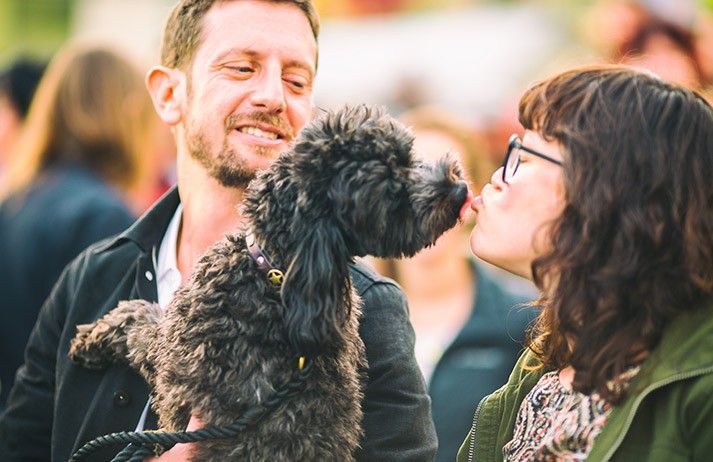
“Talking to pet owners on a daily basis, we vets know all too well that pets have become a part of the human family,” says Dr. Stijn Niessen of the Royal Veterinary College. But dogs haven’t stopped there; they’re now also our ‘colleagues’. Over 120 pups have been nominated in The Drum’s inaugural ‘Dogerati’ – a search to find the ‘top office pooch’ as part of its National Dog Day celebrations last Friday. A shortlist of 80 hounds (including our own ‘Head of Barket Research’, Oscar) are now battling it out in a public vote to be crowned top dog.
This isn’t surprising; in fact, it’s instinctive to us as humans. Seeing big eyes, oversized heads and round bodies (physical attributes we normally associate with babies) floods the brain with dopamine and triggers our nurturing drive – even when we’re looking at other species. It’s called the ‘cute response’, and brings us immense joy.
The incentives to invest so much time and money in our pets’ well being are compelling, as the emotional connection people have with their pets – especially dogs – is profound. More than a third of American owners believe their pet understands their feelings better than other humans, and 63% of British owners say they’d grieve the death of their pet as much as they would a family member.

According to David Grimm, author of Citizen Canine: Our Evolving Relationship with Cats and Dogs, as with many aspects of contemporary life, our incessant internet culture has bolstered our desire for physical interaction with animals. “A cat isn’t going to ignore you to check her iPhone,” he says. Add this to the fact that 48% of Brits are mistrustful of others, and pets come out as obvious candidates for companionship – even over other humans.
“The older our pets get, the more attached to them we’ll get,” says Niessen, “and the more they become a part of our own life story.” And while many people don’t extend the loving sentiments they have for dogs to other animals, Grimm thinks that’s changing. “Because the barriers between humans and animals are breaking down, people are increasingly uncomfortable about eating meat and testing on animals,” he explains. “A lot of that stems from the relationships we have with our pets. Given that it’s now normal for children to see their pets as siblings, this generation will be less likely to make those distinctions between pets and other animals.” The Drum’s Dogerati is not only a fun reminder of the love and affection we have for man’s best friend, but also of the importance we place on workplace happiness and moral.
Discover more insights like this by signing up to the Canvas8 Library.